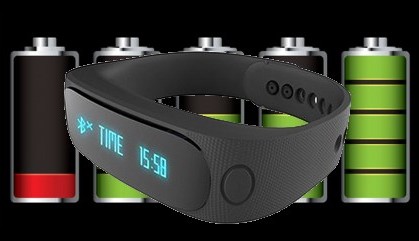Braidio extends battery life of mobile devices
August 31, 2016
on
on

A team of computer scientists at the University of Massachusetts Amherst has developed a new wireless communication technology that allows mobile devices to work much longer from a single battery charge with short wireless links. Among other things, the new technology is targeted at devices such as smartwatches and fitness trackers, which typically have a small battery and therefore a short operating time between charges.
The researchers took the widely used Bluetooth technology as their starting point and added supplementary functionality that works like RFID. In an RFID system the reader does most of the work, including supplying the transponder with the power necessary for carrying out communication. This means that the transponder, or RFID tag, does not need its own power source.
The new technology, dubbed “Braidio” (braid of radios), operates as a standard Bluetooth link as long as the device concerned has enough internal power, but it switches to RFID mode when little power is available. In that mode the other party, such as a smartphone with a much larger battery, supplies power over the wireless link. Tests by the researchers have shown that Braidio can be about 400 times more energy efficient than a standard Bluetooth connection.
The researchers took the widely used Bluetooth technology as their starting point and added supplementary functionality that works like RFID. In an RFID system the reader does most of the work, including supplying the transponder with the power necessary for carrying out communication. This means that the transponder, or RFID tag, does not need its own power source.
The new technology, dubbed “Braidio” (braid of radios), operates as a standard Bluetooth link as long as the device concerned has enough internal power, but it switches to RFID mode when little power is available. In that mode the other party, such as a smartphone with a much larger battery, supplies power over the wireless link. Tests by the researchers have shown that Braidio can be about 400 times more energy efficient than a standard Bluetooth connection.
Read full article
Hide full article


Discussion (0 comments)